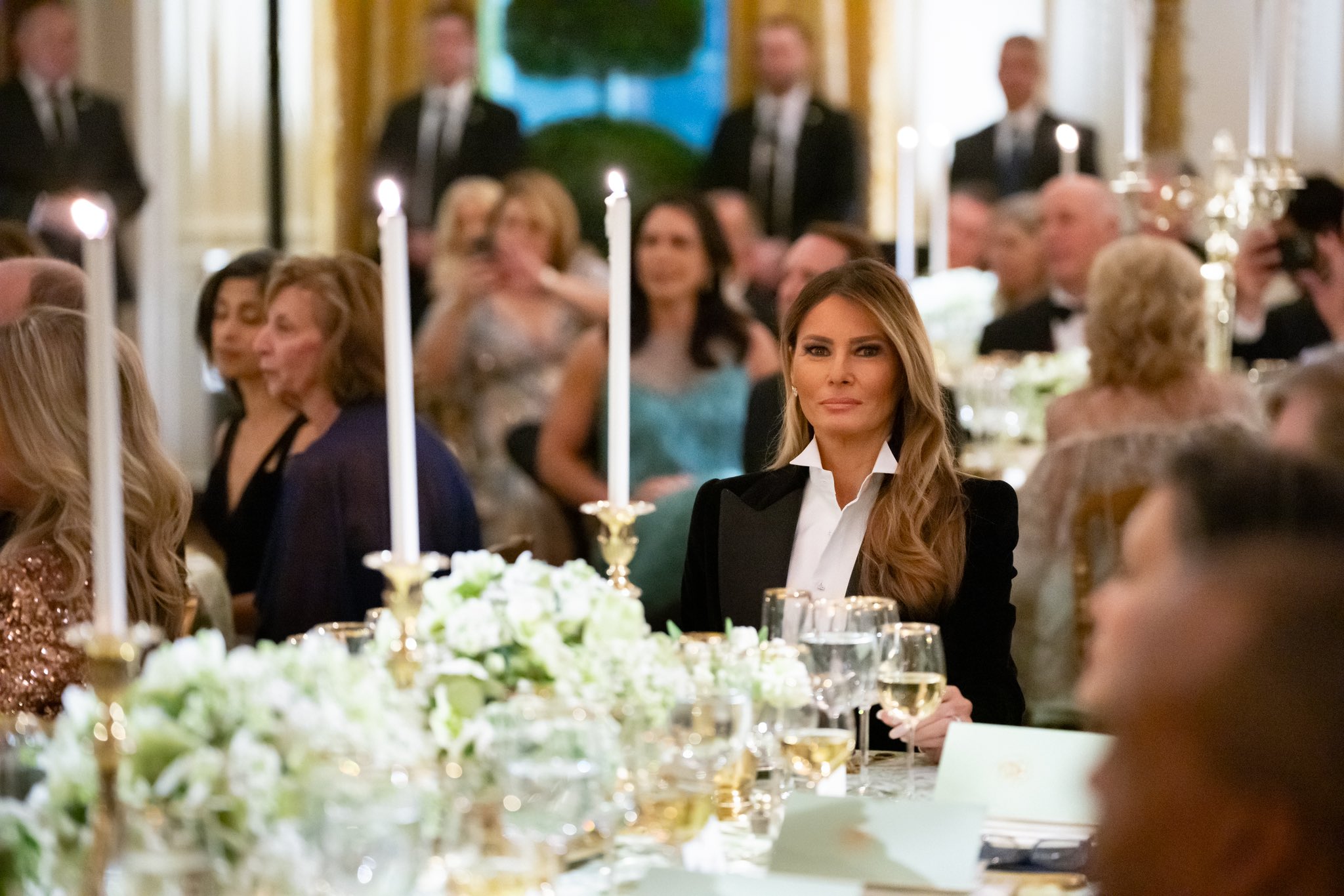DECODED: FLOTUS Melania Trump’s ‘Peace Letter’ to Prez Putin Adds a Human Dimension to Alaska Summit Diplomacy
The Alaska summit between US President Donald Trump and Russian President Vladimir Putin on August 15 carried the weight of geopolitics -- the Ukraine war, nuclear stability, and the strained relationship between the world’s two largest nuclear powers. Yet amid the guarded words of leaders and diplomats, a handwritten appeal delivered personally by Trump stood out: a letter from First Lady Melania Trump to President Putin, urging him to protect the innocence of children and seize the moment to pursue peace.
 |
| Image Source: FLOTUS Melania Trump |
Its language, at once poetic and urgent, sought to bypass the rhetoric of statesmanship and strike a universal chord -- the quiet dreams of children, the duty of parents, and the shared responsibility of leaders to secure a future free from fear.
“Every child shares the same quiet dreams in their heart, whether born randomly into a nation’s rustic countryside or a magnificent city-center. They dream of love, possibility, and safety from danger,” Melania wrote, opening with a theme that frames innocence not as a national possession, but as a shared human treasure.
Her words moved beyond sentiment into moral exhortation. “As parents, it is our duty to nurture the next generation’s hope. As leaders, the responsibility to sustain our children extends beyond the comfort of a few.”
In a single stroke, the First Lady redefined the stakes of the Alaska summit -- as a test of moral leadership with consequences for generations to come.
What made the letter notable was its deeply personal tone. It avoided technical jargon and political qualifiers, instead invoking imagery of “quiet laughter” and “melodic innocence” as symbols of resilience and fragility.
The subtext was clear: for all the strategic arguments over borders and security guarantees, the war’s true victims are children who inherit a world marred by decisions made in faraway chambers.
Psychologists of political communication have long argued that Melania Trump, often understated in public life, carries a particular sensibility that reflects her immigrant background, linguistic restraint, and cultivated distance from political brawls.
Her letter appears to tap precisely into that reservoir -- one part maternal, one part universalist, framing Prez Putin not as a rival, but as a man who can, “with a stroke of the pen today,” alter history.
Such language is not accidental. Diplomats note that spouses of heads of state are occasionally deployed in what is called the “soft power of empathy” -- messages designed to complement hard bargaining with moral suasion.
In this case, Melania’s letter functioned as a parallel track of diplomacy: while Trump and Putin exchanged views on ceasefire conditions, territorial disputes, and NATO, Melania’s appeal reminded the Russian leader of the human stakes.
It offered him a narrative in which the act of making peace could be framed as magnanimity and legacy, rather than concession.
Her direct appeal -- “Mr. Putin, you can singlehandedly restore their melodic laughter” -- stood out as both flattery and challenge. By personalizing responsibility, she cast Putin not as one among many actors in a geopolitical conflict, but as the singular decision-maker whose choices would reverberate far beyond Russia’s borders.
For a leader acutely attuned to image and legacy, such framing was both deliberate and strategic.
Observers of Melania Trump note that this was not the first time she leaned on themes of childhood, innocence, and protection. From her “Be Best” campaign as First Lady, focused on children’s well-being and online safety, to her frequent emphasis on motherhood as a universal language, she has consistently sought to position herself outside the harsh lines of partisanship. In Alaska, that persona became a diplomatic instrument.
The letter also carried a subtle undertone of urgency. By concluding with the phrase “It is time,” Melania injected immediacy into a process often bogged down by conditions and negotiations. It was, in effect, a call for Putin to seize the moral high ground now, rather than await shifting political winds.
Reactions to the letter have been mixed. Supporters see it as a deft use of moral symbolism at a moment when standard diplomacy has reached its limits.
Critics, however, argue that soft appeals risk trivializing the complexities of war, casting global crises into sentimental frames that underestimate entrenched interests.
But even skeptics are now acknowledging that Melania’s words added a dimension to the Alaska summit that pure geopolitics could not supply: an emotional register that humanizes what otherwise risks being reduced to territorial maps and military balances.
In a summit where Trump spoke of “great progress” but admitted “we are not there yet,” and where Putin called the talks “timely and useful” but stopped short of commitments, Melania’s letter stood as a reminder that diplomacy is not only about lines on paper, but about the intangible language of values and vision.
Ultimately, in offering a vision of peace as protection of children’s innocence, Melania Trump placed a moral frame on a geopolitical conflict, one that may endure in memory long after the finer details of Alaska’s negotiations fade.
